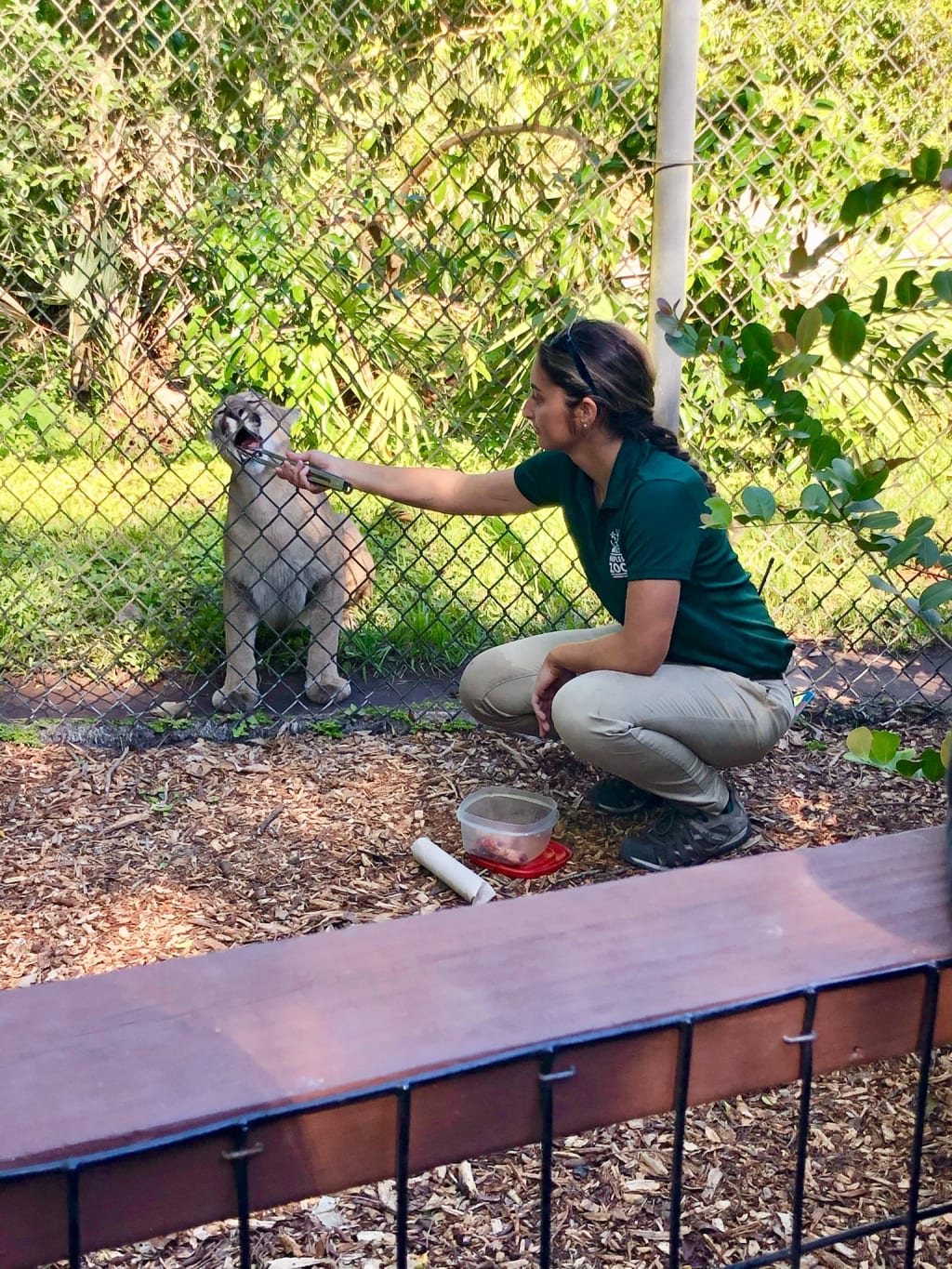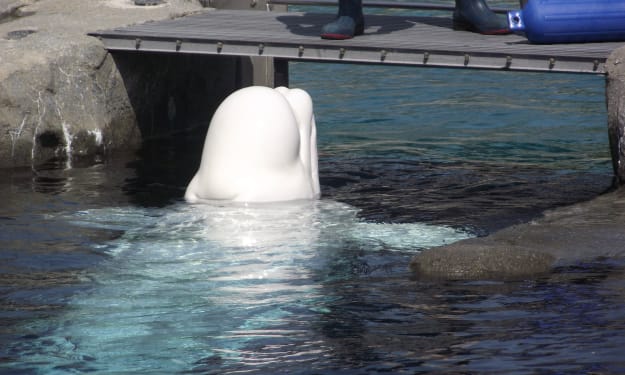The Real Queens of Wakanda IV: Carnivores Galore
In honor of Hispanic Heritage Month, the latest entry in “ The Real Queens of Wakanda” series puts a Madison Armand in the spotlight. She is a carnivore keeper at the Naples Zoo at Caribbean Gardens in Florida who has been primarily working with the zoo’s big cat family since 2019 after years of volunteer work.

In my last three articles that make up The Real Queens of Wakanda series, I have placed African American zoo and aquarium professionals in the spotlight by sharing their stories and ensuring that each of these women got to have a voice and share their stories. Yet, the series was not intended to just focus on African American female zoo professionals but all zoo and aquarium professionals of color. This includes Asian and Pacific Islanders, Native Americans, Asian Indians, people of Arab and Middle Eastern descent, and Hispanics.
In this entry, written in honor of Hispanic Heritage Month, we meet Madison Armand, a carnivore keeper at the Naples Zoo at Caribbean Gardens in Naples, Florida. She learned the importance of endangered species conservation through the work her mother did at many zoos. Years later, Madison would go on to work with carnivores at Naples Zoo where she primarily works with exotic cats and has been doing so since 2019.
She now shares her story.
1. What made you want to work with animals in the first place?
Since I was a kid, I have loved animals of all kinds and felt the need to protect those who could not speak for themselves. My mom had worked in zoos during my high school years, so I recognized the amazing work they do with endangered species through her.
2. Have you done any volunteer and, or internship experiences during your high school and college years?
In college, I dedicated a few hours a week to my local zoo’s commissary and after saving up for a while, I was able to complete a summer internship with the same zoo.
3. What is your favorite animal to work with?
So far, I love working with lions. I had the privilege of watching three cubs grow up over the last year and a half and it’s been amazing. I especially love watching their mother, who is a first-time mom, be so good and patient with them. In the carnivore department at my zoo, we also have red ruffed lemurs in our section and I adore training them. They are so intelligent and pick up on things very quickly.
4. When did you land the position you have now?
Only a year ago! After years of working full-time through college as a bartender and trying to volunteer at the local zoo at the same time, I finally got my degree and was able to get a job at the same zoo.
5. What is it like for you to be a person of color to be part of the zoological community? Have you faced any challenges along the way?
Since I am a white Hispanic woman, I feel like I don’t face the same struggles as someone who has a deeper skin tone (like my father). However, when someone finds out I am of Cuban descent, they may say things like “Your people work so hard! No wonder you sought a physically demanding job!” Luckily, in my actual workplace, I haven’t experienced anything like this. It’s mostly from others outside the zoo.
6. Since your social media implies that you work with predatory animals, what do you hope people will get out of seeing the animals under your care?
I hope that the stigma and fear that drives people to harm or kill these animals will vanish. Teaching people that these predators are incredibly important to their environments hopefully will make people care about their presence in the wild. I work with a Florida panther and since the species is endangered, one of my favorite things to talk about with guests is how they can make small changes to conserve the species and therefore protect the environment they live in and the other animals in it.
7. Last question, any advice for kids and teens who are looking into the possibility of working with animals in a zoological setting?
Volunteer as soon as possible! If you don’t have a zoo or aquarium near you, definitely get any animal experience you can. Even if it’s a shelter or at a veterinary clinic. This will not only look good on your resume, but it will allow you to understand animal behavior more deeply.
Thank you so much, Madison for sharing your story and all you do for these amazing cats.
About the Creator
Jenna Deedy
Zoo and Aquarium Professional, Educator, Cosplayer, Writer and B.A. in Psychology whose got a lot to share when it comes to animals, zoos, aquariums, conservation, and more.
Instagram: @jennacostadeedy






Comments
There are no comments for this story
Be the first to respond and start the conversation.